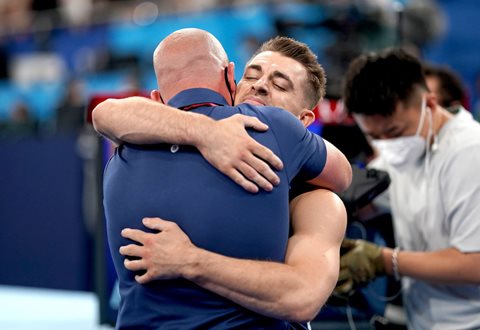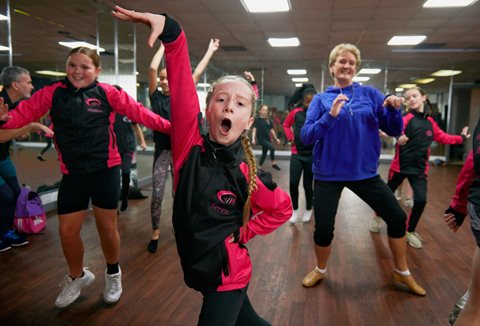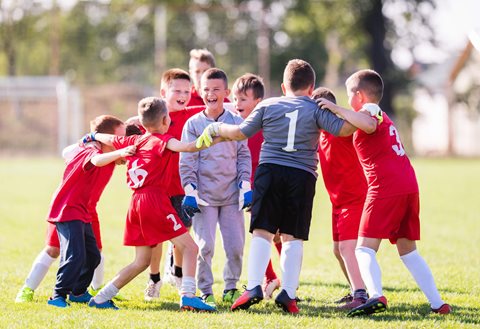Our cookies
We use essential cookies to make our website work smoothly for you. To make sure we're always improving, we'd like to use analytics to track how people use the site. We won't set non-essential cookies unless you give us permission. You can find more information about all the cookies we use in our Privacy and Cookie Policy.
Some cookies are a must for our website to function properly. If you turn off essential cookies, it may affect how you experience our site.
The non-essential cookies we use help us understand how you use our website and make improvements to enhance your experience.
Coaching Sessions For All: How to Plan a Sports Coaching Session
Wondering how to plan the perfect sports coaching session? Our top tips for sports coaching session planning can help you enhance your sessions to ensure that they’re fun, enjoyable and memorable, while highlighting that your circumstances will be specific to you.
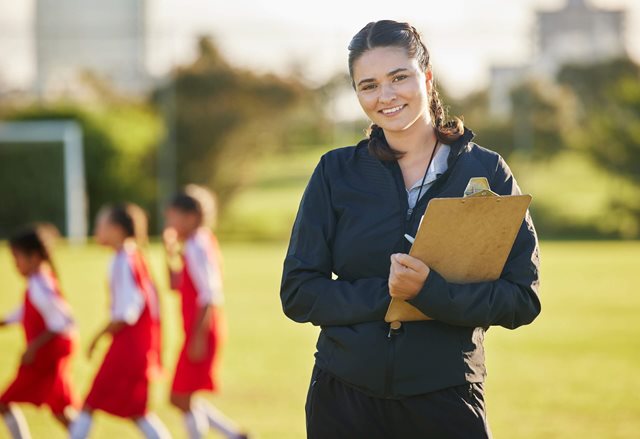
Included in this article:
by Richard Smythe
For Jess Callaghan, Head of Workforce Development at Streetgames, planning for a coaching session kicks in well before the kids have pulled on their trainers.
"We have something called the Five Rights," she tells me. "Provision should be at the right time, right style, price, place, and delivered by the right person."
StreetGame, a charity that aims to support young people in underserved areas by enabling the delivery of fun, accessible sports coaching.
"The idea is that there should be provision on the doorsteps of young people in the targeted communities that we work in," she says. "In everything that we do, sport is always the vehicle. So whether we’re working on raising aspirations, we’re working on employability, we’re working on tackling mental health or tackling social behaviour, it’s all done with sport as the vehicle."
Engaging these young people with sport can sometimes take more than just fun coaching games. It’s easy, Jess says, "to think 'I’m going to put on football, tennis, cricket, it’s going to be amazing', but these kinds of plans can fall short 'if I haven’t really thought about who I’ve done it for, and where they want it, what time do they want it, what sort of style they want it in.'"
What should be included in a sports coaching session?
Once you’ve thought through the process of ensuring your sports coaching sessions are accessible, inclusive and genuinely geared towards the needs of the children you want to coach, you can start thinking about your sports coaching plans and the actual content of the sessions.
"Our philosophy is broadly built around creating environments that are built with the learners you’re working with," says Ben Franks, Coaching Developer at the coaching research project Boing .
"It’s about co-creation and collaboration with them so they can create something in those environments that means something to them."
Top tips for planning a coaching session
"If you ask me to sum everything up all in one word," says Jess, "are we making it fun for them? That should be the centre of everything. It’s got to be fun. If it’s not fun, they’re not going to learn."
Think about personal development
Sport for kids can be as much about personal growth as it is about technical excellence or physical development. Try to incorporate this into your sports coaching plans.
Things like, how are they socializing with each other, what’s the emotional, social side of things? How are they building resilience? How are they building their self-esteem? How are they pushing themselves out the comfort zone a little bit."
Jess Callaghan StreetGames
Play games that can regenerate
A game that comes to a dead-end—‘Tag, you’re out!’—can put a brake on your coaching, and the kids’ learning.
"For us, one of the biggest things when planning a game is the fact the game can regenerate," Ben explains. "So the game never comes to an absolute end point. It keeps recycling and renewing itself as part of the game mechanism. So if someone’s tagged maybe they adopt a new role, or they have a reset point, so the game can continue in that cycle.
"It’s a way to maximise everyone’s learning time."
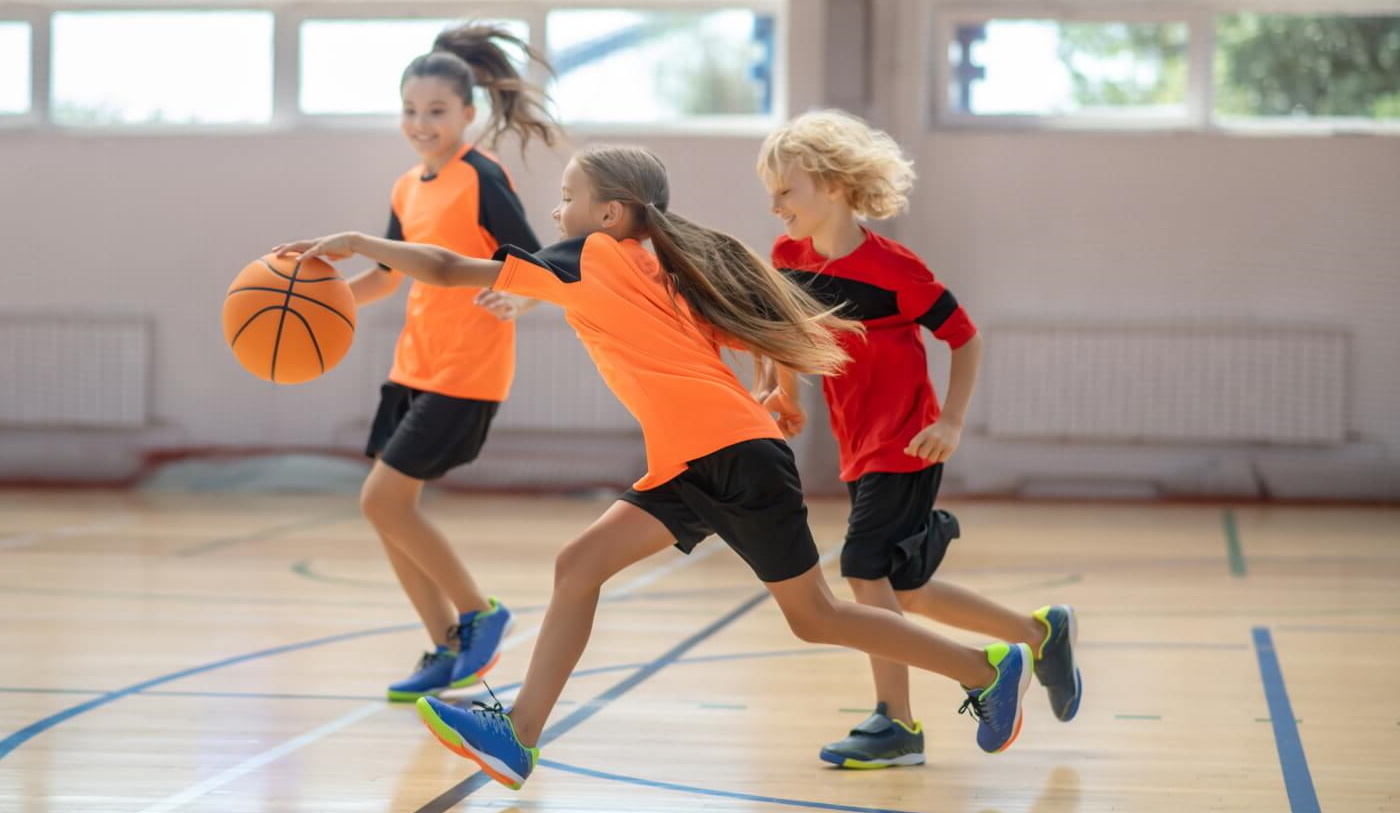
Don’t get hung up on learning objectives
Your sports coaching plans should keep some learning objectives in mind—but remember that specific, technical outcomes aren’t the be-all and end-all. A coaching session isn’t a production line.
Ben talks about ‘learning themes’ rather than measurable results. "We might be kind of quite focused around, say, object control for example," he says.
"So, how they use a ball, how they control a ball. That’s our broad learning theme. But it’s still built around allowing a little bit of flexibility in the space.
Every kid comes into that game with a different set of dispositions, different histories culturally and socially. So trying to impose too strongly a certain learning outcome might put a ceiling on what it is they're capable of. We want to leave a little bit of scope for them to leave that session having put their own unique footprint on that space."
Ben Franks Boing
Be flexible!
Child-centred coaching is all about meeting the needs of the young people you want to coach. That’s more important than following the sports rulebook to the letter, or aiming for perfect technique.
Jess chooses a tennis session as an example.
"It might not look necessarily like tennis," she says. "It might not look like Wimbledon, one person each side of the net, knocking it back and forth for ages. But we’ll show you how to engage a group of people, get them hitting the ball, learning some of the rules of tennis.
"So games that look like tennis, but aren’t exactly tennis. And the same goes for rugby or football. There’ll be some basic coaching tips in there. So we might offer some tips around how to backswing and follow through, might talk about stance, might talk about positioning. But it’s not like if you went to, let’s say, a conventional Saturday morning club session where they’re doing drills, drills, drills, and that’s all you’re focusing on."
A game that’s creative, fun and engaging may do more good in the long run than a one-size-fits-all session that focuses on doing one thing one way.
Ben explains that at Boing the coaching developers think of a session plan as 'playdough.'
"So we create the ball of playdough and give it to the real coaches, the practitioners, the experts delivering Boing around the country. And then it's up to them how they mould it and adapt it."
And of course, it isn’t just the coaches who should have a say in how sports coaching plans adapt and evolve in practice.
"One of the ways they might mould that bit of playdough is by leaving room for the learners in the sessions,’ Ben says. A good coach can allow the needs of the kids in the session to shape the way a game works.
"It might be like superpowers," suggests Ben. "It might be that we have a kid that’s a little bit disengaged, who maybe has had a really negative previous experience of physical activity or sport. One of the ways to capture their imagination might be to give them, say, a special role or a special power, or be a disrupter in the game, and you can give them the scope to create that role for themselves."
As always, there’s no 'right way' to plan or run a coaching session; every coach is different, and so is every learner.
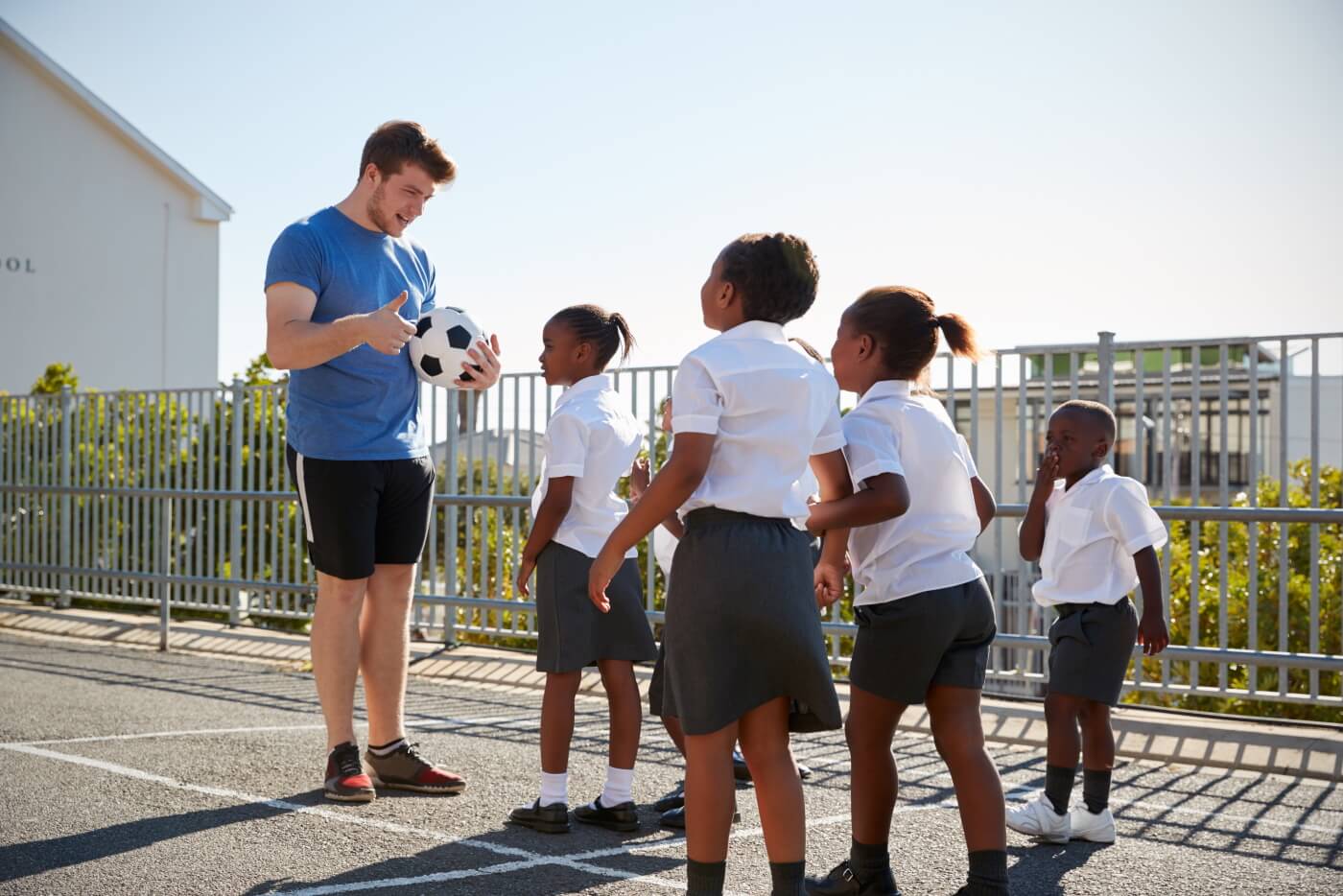
Support Children to Play Their Way
Use these five games to kickstart your creativity and help you deliver fun child-first sessions.
GAMES TO HELP YOU PLAY THEIR WAY
But these kinds of basic principles—being flexible, focusing on the children’s needs, maximising learning time, prioritising personal development—can provide a helpful and enduring foundation for all kinds of sports coaching sessions.
Once these principles are embedded, it’s up to you to get shaping the playdough.
Director of Play England Eugene Minogue talks about the danger of 'sportising' children and how to champion free play on the Play Their Way Podcast.
Other resources you may like...
SHARE THE MOVEMENT
Help spread the word by sharing this website with fellow coaches!

